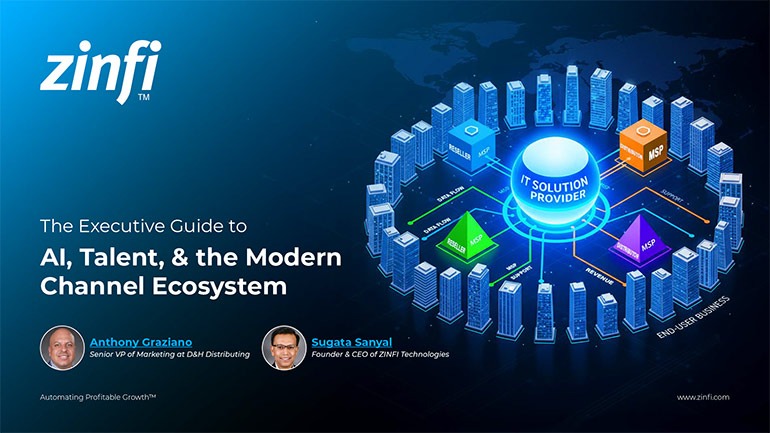Best Practices Articles

From BBS to Boardroom: Joe Levy’s Cybersecurity Origin Story
In the ever-evolving world of cybersecurity, few leaders boast a trajectory as unconventional and enlightening as Joe Levy’s. Now the CEO of Sophos, a global cybersecurity company, Levy began his journey dismantling household electronics out of sheer curiosity. His early inclination toward understanding how things break planted the seeds for a distinguished career in protecting digital infrastructure. His story offers more than an inspiring narrative—it provides valuable insights into the personality traits and experiences that foster a successful cybersecurity leader. This article delves deep into the formative moments of Joe Levy’s life, examining how a blend of intellectual curiosity, hands-on experimentation, and academic redirection paved the way for his current role. As we explore his transformation from a BBS enthusiast to a corporate executive, we’ll also reflect on the lessons that today’s tech aspirants and cybersecurity professionals can draw from his path.
🎥 Watch the Full Video Podcast
Early Curiosity and Technical Foundation
Joe Levy’s story begins not in a formal classroom or corporate boardroom, but in the living room of his childhood home, surrounded by the dismantled parts of radios, VCRs, and computers. With a deep desire to understand how things worked, he frequently took devices apart and challenged himself to reassemble them. These experiments didn’t always succeed, but they built a strong technical foundation over time and sparked an enduring interest in system design and failure analysis. His fascination with technology was less about programming syntax or engineering theory and more about exploration and discovery—a trait that remains essential in modern cybersecurity roles.
As a teenager, Levy entered the digital underground of bulletin board systems (BBS), where he operated his dial-up node. This hands-on experience running a BBS gave him early exposure to networking, software configuration, and digital communications, long before the internet became mainstream. These skills would prove instrumental in shaping his understanding of how data travels and where vulnerabilities often lie. More importantly, it gave him firsthand insight into the cyber community’s subcultures, ethics, and challenges, which helped shape his holistic view of cybersecurity.
His first significant professional step into the industry involved developing a firewall solution using the Linux operating system. At a time when commercial firewalls were prohibitively expensive for small businesses, Levy crafted a low-cost, functional alternative that quickly gained popularity among local firms. This entrepreneurial initiative highlighted not only his technical skills but also his market awareness. It also foreshadowed his lifelong commitment to supporting small and mid-sized businesses (SMBs)—a segment often overlooked in cybersecurity.

Academic Pivot and Communication Mastery
One of the more unexpected elements of Levy’s journey is his switch from computer science to English during college. After a plagiarism misunderstanding in a Pascal programming class, Levy made the tough decision to abandon his initial major. Rather than letting this derail his career aspirations, he saw it as an opportunity to develop different skills—those centered on communication, analysis, and narrative.
This pivot turned out to be a strategic advantage. As a literature student, Levy honed his writing and storytelling capabilities, which were tools that would later differentiate him in the highly technical world of cybersecurity. Whether explaining complex threats to non-technical stakeholders or crafting strategic vision statements, his command of language became an asset that enhanced his leadership and outreach capabilities.
This dual fluency in technical and literary domains set Levy apart. It allowed him to effectively bridge the communication gap between engineers, executives, cybersecurity professionals, and clients. Today, as a CEO, this strength will enable him to articulate Sophos’ vision clearly and convincingly, galvanizing both internal teams and external partners. His story underscores the immense value of soft skills in technical careers, particularly in fields as complex and nuanced as cybersecurity.
Cybersecurity as a Calling and Career
While many professionals fall into cybersecurity by necessity, for Levy, it was more of a calling. His foundational interest in breaking and fixing systems naturally led him to a field that rewards analytical thinking and anticipatory problem-solving. He didn’t just adopt cybersecurity; he embodied it. From crafting firewall solutions to leading security operations, every step in his career reflected a deliberate pursuit of resilience and innovation.
His decision to join Sophos was driven by a deep-rooted belief in leveling the cybersecurity playing field. After starting his career working with SMBs, he understood their unique challenges—limited budgets, lack of skilled staff, and growing exposure to threats. Under his leadership, Sophos has focused on delivering accessible, enterprise-grade security to organizations below the so-called "cybersecurity poverty line."
Today, Levy leads with a blend of technical excellence and empathetic leadership. He champions a philosophy prioritizing operational efficiency and human-centric values—a balance increasingly rare in an industry obsessed with automation and scale. His background, steeped in systems thinking and storytelling, allows him to navigate the complexities of cybersecurity with insight and foresight.

Conclusion
Joe Levy’s journey from a curious kid disassembling gadgets to the CEO of a global cybersecurity firm is a testament to the power of adaptability, curiosity, and interdisciplinary learning. It also offers a blueprint for aspiring cybersecurity professionals who may not follow the traditional path. Levy’s experience proves that career detours can become assets, and that soft skills like communication and empathy are just as critical as technical know-how.
As cybersecurity continues to grow in importance, the industry will need more leaders who can think holistically, act empathetically, and communicate effectively. Joe Levy exemplifies these traits. His story is not just about personal success—it’s a call to future leaders to embrace complexity, pursue knowledge relentlessly, and always remain connected to the human side of technology. In a world where threats evolve daily, such leadership isn’t just valuable; it’s essential.
Best Practices Guides
 First Principles Drive Modern Partner Ecosystem Success Best Practices
First Principles Drive Modern Partner Ecosystem Success Best PracticesDownload for FREE
 The Future of Managed Service Providers: Navigating the Age of AI and Automation
The Future of Managed Service Providers: Navigating the Age of AI and AutomationDownload for FREE
 Modernizing Channel Marketing: AI and Ecosystem Enablement Best Practices
Modernizing Channel Marketing: AI and Ecosystem Enablement Best PracticesDownload for FREE
 The Channel’s Shift to Partner-Led With AI Best Practices
The Channel’s Shift to Partner-Led With AI Best PracticesDownload for FREE
 Hyperscalers, ISVs, and AI: Shaping the Future of B2B Software Distribution
Hyperscalers, ISVs, and AI: Shaping the Future of B2B Software DistributionDownload for FREE
 Definitive Guide to a Partner Ecosystem-First Sales Strategy
Definitive Guide to a Partner Ecosystem-First Sales StrategyDownload for FREE
 The Partner-Led Digital and AI Transformation Best Practices
The Partner-Led Digital and AI Transformation Best PracticesDownload for FREE
 Startup Talent Recruitment: Hiring Missionaries, Not Mercenaries
Startup Talent Recruitment: Hiring Missionaries, Not MercenariesDownload for FREE
 The Future of Partner Relationship Management with AI in Partnerships
The Future of Partner Relationship Management with AI in PartnershipsDownload for FREE
 Cybersecurity for the 99%: Strategies from the Frontline
Cybersecurity for the 99%: Strategies from the FrontlineDownload for FREE
 Mastering Partner Relationships: A Strategic Approach to Business Growth
Mastering Partner Relationships: A Strategic Approach to Business GrowthDownload for FREE
 Mastering Partner Relationship Management: Keys to SaaS Channel Success
Mastering Partner Relationship Management: Keys to SaaS Channel SuccessDownload for FREE